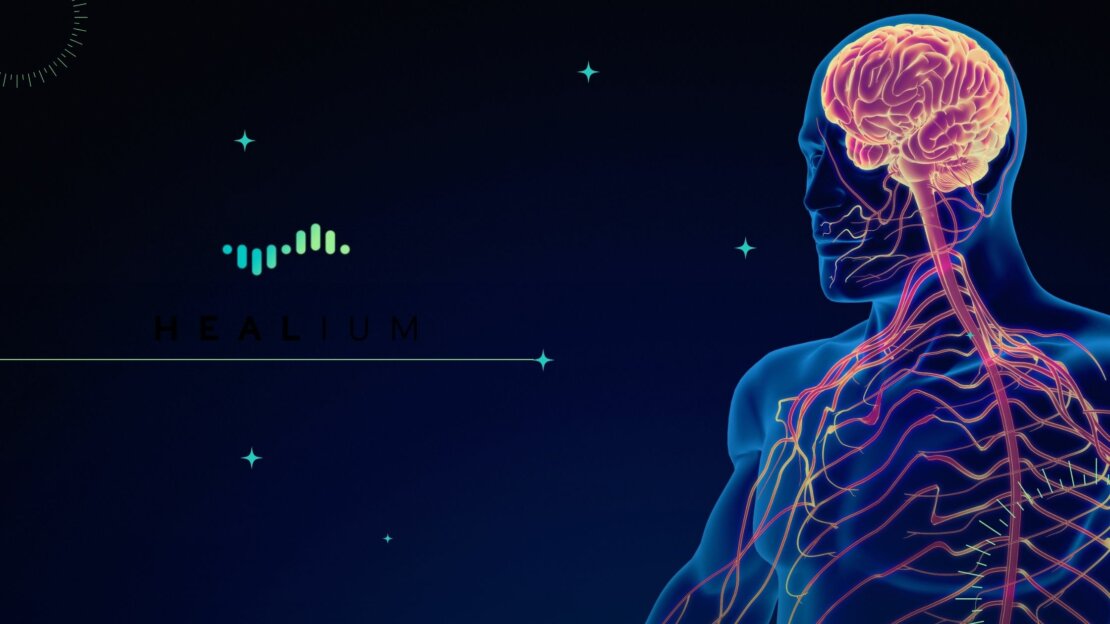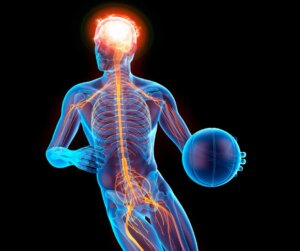




Learn how to regulate the nervous system with practical tips and biofeedback meditation

The autonomic nervous system (ANS) is an unsung hero of our body, silently managing crucial functions like heart rate, digestion, and respiratory rate. Yet, this system is also profoundly affected by stress, overlooked until imbalances manifest as physical or emotional symptoms. Understanding and regulating your ANS is not just about reducing stress; it’s about enhancing your overall health and wellbeing.
 The ANS is a part of the nervous system that controls many of the involuntary functions of our body. While you’re reading this, your ANS is regulating your heartbeat, managing your digestion, and even adjusting your pupil size.
The ANS is a part of the nervous system that controls many of the involuntary functions of our body. While you’re reading this, your ANS is regulating your heartbeat, managing your digestion, and even adjusting your pupil size.
The ANS is divided into two primary components: the sympathetic nervous system (SNS) and the parasympathetic nervous system (PNS). The SNS is often referred to as the ‘fight or flight‘ response, preparing your body for quick action in the face of danger. The PNS, on the other hand, is the ‘rest and digest’ system, helping your body to relax and recover.
At Healium, we’ve studied the effects of stress on your brainwaves in particular. Whenever you are stressed, beta brainwaves go into hyperdrive, sending messaging through the Amygdala, which controls emotional processing.
When this happens, our SNS kicks into high gear, releasing cortisol and adrenaline, increasing our heart rate, and redirecting energy towards emergency functions. This response is crucial in short-term, high-stress situations but can be damaging if activated continuously over time.
Ideally, once the stressor is gone, your high beta waves lessen and you return to a relaxed state. But if you suffer from chronic stress, your high beta waves prevent you from relaxing altogether.
This chronic activation of the SNS can lead to symptoms like anxiety, insomnia, and digestive disorders. It’s crucial to recognize these signs early to prevent long-term health issues. This is exactly why Healium has been designed to help lower your stress levels by granting users agency over their brainwaves during meditation sessions.
A dysregulated nervous system may manifest as persistent fatigue, difficulty concentrating, anxiety, panic attacks, or even muscle pain. It’s important to be aware of these signs as they can indicate a deeper imbalance.
Factors contributing to nervous system imbalance include chronic stress, traumatic events, poor sleep habits, and unhealthy diets.
 7 Ways to Regulate Your Nervous System
7 Ways to Regulate Your Nervous SystemBreathing exercises are a cornerstone for calming the nervous system. The “physiological sigh,” a technique advocated by neuroscientists, involves taking two short, sharp inhales through the nose to fully inflate the lungs, followed by a long, slow exhale through the mouth. This method helps reset the autonomic nervous system, reducing the immediate feeling of stress.
For deeper relaxation, engage in diaphragmatic breathing daily: sit comfortably, place one hand on your belly, breathe deeply into your diaphragm for a count of four, hold for four, and exhale slowly for eight.
Integrating regular physical activity into your routine can dramatically lower stress hormone levels and enhance autonomic nervous system (ANS) regulation.
Tailor your exercise to match your fitness level and interests: this could range from gentle yoga sessions, which focus on breath and movement, to brisk walking in nature. Aim for at least 30 minutes of moderate exercise most days. Physical activity not only boosts your mood but also improves sleep and cognitive function.
Mindfulness and meditation offer profound benefits for calming the mind and rebalancing the nervous system. Start with guided meditation sessions, focusing on your breath and bodily sensations, for 10 minutes daily.
Gradually increase the duration as you become more comfortable with the practice. Incorporate mindfulness into daily activities, such as eating or walking, by fully engaging your senses and being present in the moment. This practice reduces stress and enhances emotional regulation.
Spending time in natural settings and employing grounding techniques can significantly rebalance your autonomic nervous system. Aim for regular “green time” by walking in a park, forest bathing, or gardening for at least 20 minutes daily.
Ground yourself by walking barefoot on grass or sand, focusing on the connection between your feet and the Earth. These activities reduce cortisol levels and promote a sense of wellbeing.
A diet rich in nutrients supports nervous system health. Focus on incorporating foods high in omega-3 fatty acids (such as salmon, flaxseeds, and walnuts), magnesium (found in leafy greens, nuts, and seeds), and B vitamins (present in whole grains, eggs, and dairy). These nutrients play a key role in reducing inflammation and supporting neurotransmitter function.
Quality sleep is crucial for autonomic nervous system function. Establish a consistent sleep schedule by going to bed and waking up at the same time every day, even on weekends.
Create a calming bedtime routine by reducing screen time an hour before bed, practicing relaxation techniques, or reading. Make your sleep environment conducive to rest by keeping it cool, dark, and quiet. These practices enhance sleep quality, which is vital for nervous system regulation.
Healthy social connections and co-regulation are fundamental for nervous system health. Engage in regular, meaningful interactions with friends and family, whether in person or virtually.
Practice active listening and empathy in conversations, which foster deeper connections and mutual emotional support. Participate in group activities or hobbies that bring you joy and a sense of community. These interactions help regulate emotions and stress, contributing to a healthier autonomic nervous system.
Healium helps insert mindfulness meditation into your daily routine in an exciting new way that uses your own brainwaves within the meditation session so that you can begin to self-regulate patterns associated with stress.
This biofeedback data acts as your compass, providing you a way in which to understand how your brain is wired. This is the first step to driving meaningful change.
Our app has been proven to reduce anxiety in as little as four minutes.
Sarah Hill, a former interactive TV news journalist at NBC, ABC, and CBS affiliates in Missouri, gained recognition for pioneering interactive news broadcasting using Google Hangouts. She is now the CEO of Healium, the world’s first biometrically powered VR channel, helping those with stress, anxiety, insomnia, and other struggles through biofeedback storytelling. With patents, clinical validation, and over seven million views, she has reshaped the landscape of immersive media.